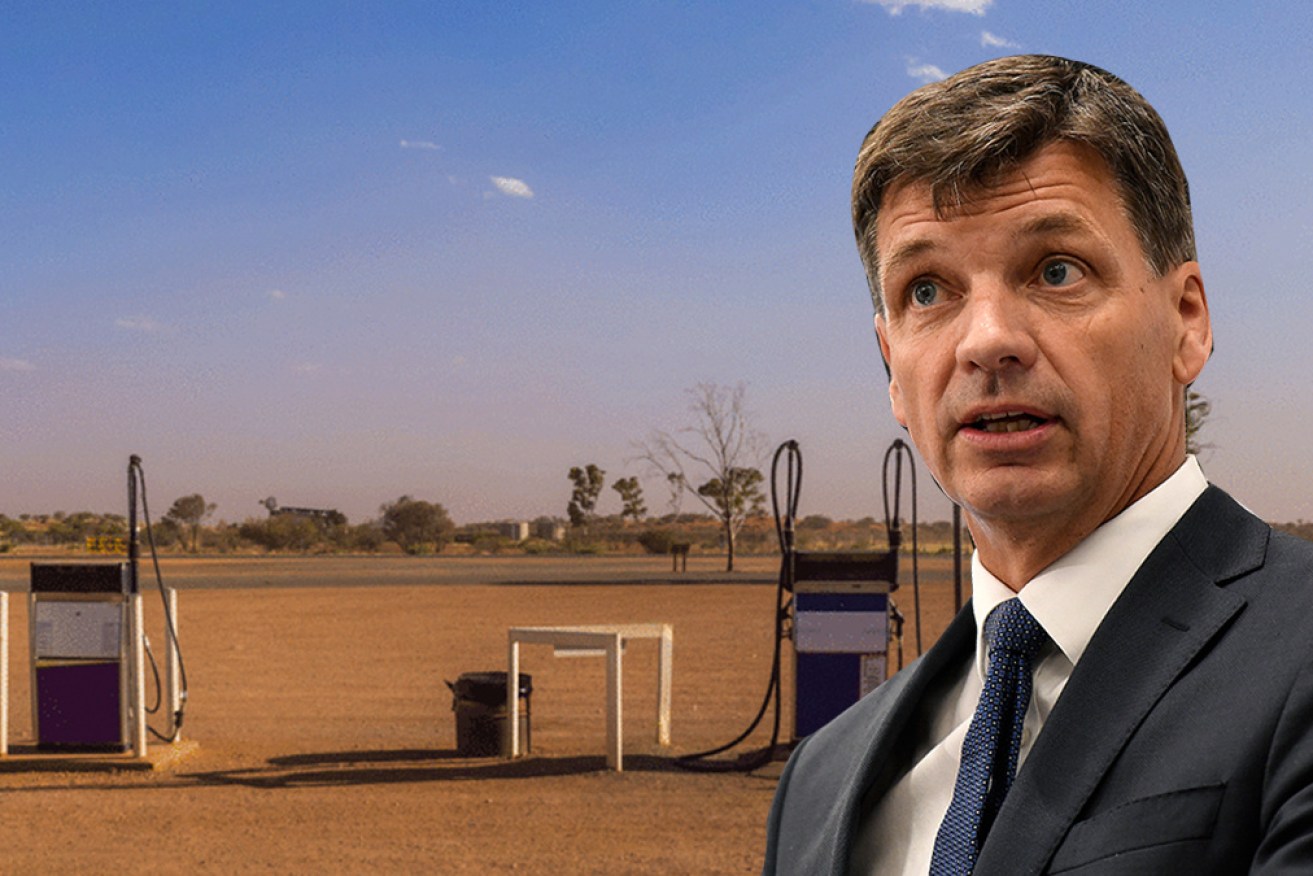Question marks raised over whether Australia keeps enough oil onshore


Analysts have questioned Angus Taylor's strategy for boosting emergency fuel stockpiles. Photo: TND
As Australians panic-buy various goods to protect themselves from perceived supply shortages, politicians and analysts have questioned the government’s strategy for boosting the nation’s fuel supplies.
Australia is obliged as a member of the International Energy Agency (IEA) to stockpile 90 days’ worth of fuel to protect the country from global supply shocks.
But Energy Minister Angus Taylor said in August that Australia only had enough fuel to last 28 days – leaving it exposed to supply shocks such as those triggered by the coronavirus outbreak.
Mr Taylor says he has enhanced “our fuel security by boosting Australia’s oil stockholdings” by signing a deal with the US that guarantees Australian access to US petrol and crude oil.
But politicians and security analysts have said the strategy is flawed because it would take roughly three weeks for US oil to reach Australian shores – defeating the entire purpose of having a stockpile to draw upon in the event of an emergency.
Tweet from @AngusTaylorMP
A bird in the hand is worth two in the bush
Speaking after the coronavirus outbreak triggered a disagreement between oil producers that pushed down global prices by 30 per cent, Senator Rex Patrick said Mr Taylor’s plan to source oil from the US was a second-rate policy that failed to improve the country’s fuel security.
He told The New Daily there’s “nothing like having proper fuel stores within our territorial limits”.
Not only because we have somewhere between “25 and 30 days” worth of supply, but also because he said it would take roughly three weeks for US oil to arrive in Australia, and because shocks such as the coronavirus have shown that “even with the best will in the world, there simply may not be the crews or ships available … to supply or load vessels up”.
What’s more, Senator Patrick said the government had kept hidden the details of the agreement – making it hard to determine if it represented a good deal for Australia.
“We don’t know what its terms and conditions are. We don’t know what the cost is. We don’t know under what circumstances we would get access to that oil. We don’t know constitutes an emergency. We don’t know whether an emergency in the United States trumps an emergency in Australia – and I suspect it does,” Senator Patrick said.
“This is all smoke and mirrors – trying in some way to meet our [international] obligations, but doing so in a way that I think is mischievous.”
Politics muddies the issue
Meanwhile, Alexey Muraviev, an associate professor of National Security and Strategic Studies at Curtin University, said the coronavirus outbreak underscored Australia’s dependency on global oil producers.
Australia imports 90 per cent of its fuel, according to The Australia Institute, and is on course to import 100 per cent by 2030, according to the NRMA.
Although Professor Muraviev tentatively welcomed the proposed deal with the US on the basis it improved relations with a “reliable partner”, he said current disruptions to global supply chains meant it remained to be seen if Australia had enough onshore emergency stockpiles.
He told The New Daily geopolitical tensions complicate the issue.
“Twelve months ago we wouldn’t have been talking about pandemic threats to global supply chains, we would have been talking about what the North Korean regime is doing. We would have been talking about whether there could be a conflict between the United States, Israel and Iran,” Professor Muraviev said.
“That makes the whole debate and the whole issue about us having sufficient resources in Australia, given the fact we’re an island continent, as relevant as before – because the whole premise of us having up to 30 days’ worth of fuel supplies in Australia is based on … an expectation of continued, steady supply.”
Professor Muraviev conceded that buying more emergency stockpiles would require significant public investment in storage capabilities.
But he said fuel security was too important for the government to “justify” cost savings in this area.
Running out of fuel would not only bring cars and trains to a grinding halt, it would cause serious disruptions for food supplies and medication stocks, and leave our military without fuel to fly planes and drive tanks.
Tweet from @Senator_Patrick
History says we should be OK
Energy program director at independent think tank Grattan Institute Tony Wood said Mr Taylor’s proposed deal with the US government was a perfectly fine way for Australia to meet its obligations as a member of the International Energy Agency.
“The reason we [have 90 days’ worth of supply in storage] is not for Australian supplies,” Mr Wood told The New Daily.
“It is so that if there was to be a major disruption in global supply, the IEA would declare that, and the [member] countries of the IEA who had signed up to this would then release some of their strategic reserves to avert any problems, wherever they might be.”
Mr Wood added, however, that Mr Taylor’s plan did not address the issue of whether Australia kept enough oil onshore – although he said government reviews had previously found the cost of increasing our onshore reserves would outweigh the benefits, and a diverse supply chain minimises our exposure.
“If I was asked for my opinion, I would say we don’t need to worry about it, but I’d be a bit careful,” Mr Wood said.
“It’s a bit like saying I’m going to live to 100 and, therefore, I shouldn’t buy insurance.
“But that’s not the point – you buy insurance on the basis of risk.
“And are there risks? Yes.
“But … we’ve been in breach of the [IEA]’s obligations for a long time, and, as our own refineries have been shutting down over the last 20 years, our exposure [to supply shocks] have been gradually increasing, and we haven’t had any problems.”








